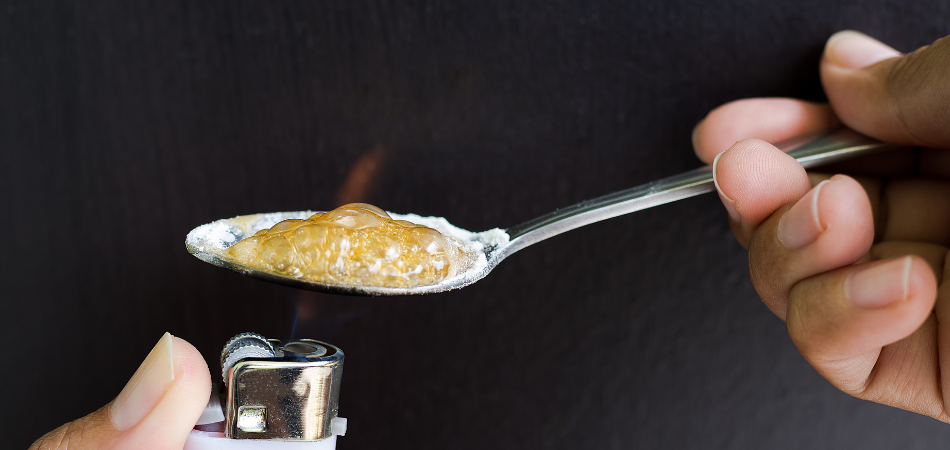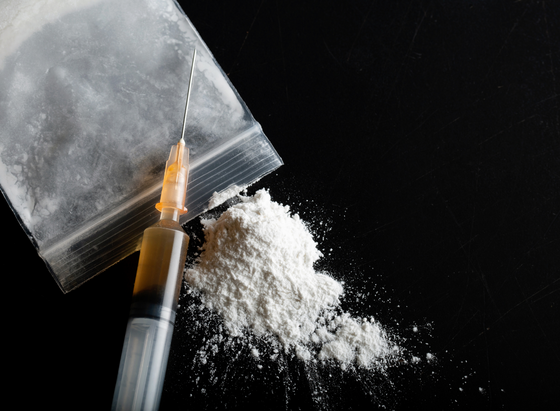Ketamine addiction

Written by:

Medically Reviewed by:
Last Updated:
April 10th, 2025
An addiction to ketamine is predominantly psychological, meaning people often become addicted to ketamine to mask any underlying issues that they may be struggling with. Read on to gain a deeper understanding of what ketamine addiction is, how to spot the key symptoms and where to seek the necessary help.
What is ketamine?
Ketamine is a dissociative drug often used as an aesthetic for human and animal surgeries. Ketamine is not to be administered outside of medical fields and it’s considered a class B drug in the UK. However, due to its ability to invoke a trance-like state, some people abuse ketamine for recreational use. When used in medical settings, it appears as a clear liquid and is injected. However, when sold on the street, it often comes in a white powder form, where it’s usually snorted or ingested. When distributed illegally, ketamine often goes by various nicknames such as:
- Special K
- Ket
- K
- Kitkat
- Jet
- Vitamin k
- Calvin Klein (A combination of cocaine and ketamine together)
What is ketamine addiction?
Ketamine addiction is a mental disorder which causes a person to have limited control over their ketamine intake despite the negative effects of abusing the drug. Ketamine is psychologically addictive, mainly because of its strong sedative properties, allowing users to feel short-lived moments of pleasure. However, after frequent use, people can begin to develop a tolerance to ketamine, meaning that they need to take more and more of it, and in higher doses, to experience the same “high”. This causes people to develop a reliance on ketamine, so much that when a person attempts to stop using ketamine, they may feel as though they’re mentally unable to and continue to take it despite wanting to stop.
What are the signs and symptoms of ketamine addiction?
If you think you may have an addiction to ketamine, consider the following statements. If any of them resonate with you, it may suggest you have a ketamine addiction.
- I use ketamine daily.
- I become irritable if I cannot access ketamine.
- I feel as though I am constantly craving ketamine.
- Since abusing ketamine, my memory and concentration levels have lessened.
- I have built a high tolerance to ketamine, meaning I take larger amounts than I once did and consume more frequently than I once did
- Since I have been abusing ketamine, I have noticed a breakdown in my close relationships.
- Since abusing ketamine, I have neglected my personal and professional responsibilities.
- I am no longer interested in socialising; I only associate with people who take ketamine.
- Since I have been abusing ketamine, I have experienced panic attacks on more than one occasion.
- I experience anxiety and depression if I can’t access ketamine.
- I have attempted to reduce or quit ketamine but feel powerless to stop.
Why am I addicted to ketamine?
We stand steadfast in our belief that drug addiction does not discriminate; it can happen to anyone under any circumstances. With this being said, some factors may trigger ketamine abuse. Such factors could be:
Escaping trauma
Given that ketamine is a tranquiliser and its short-term effects are thought to bring about a sense of detachment from reality, numb pain and generate a sensation of calm, it’s easy to see how people may clutch onto it as a means of escape from more uncomfortable thoughts and feelings.
Life brings about many complications for us all, and there are times when problems get too much. We may have experienced grief, heartbreak, illness, rejection of some kind, unemployment, or any other reason that may contribute to feelings of depression. Frequently using ketamine may provide temporary relief for those in a low place.
Recreational habit
When consumed illegally, ketamine is considered a party drug, meaning that it is often consumed in clubs and social settings. If someone constantly uses ketamine each time they socialise, they may feel like they can’t enjoy themselves without it. Therefore, repeated ketamine abuse becomes a habit that could give way to ketamine addiction.
Social and environmental causes
Ketamine was once a drug that people avoided, but over the last couple of decades, attitudes toward it have changed and now it’s more socially accepted. Ketamine is relatively cheap and easy to get hold of, which is why it’s the third most popular drug (after cocaine and ecstasy) among university students. Moreover, as ketamine is considered to have sedative qualities, it may be a drug that people use with others in their homes if there’s nothing else to do. People may be more susceptible to ketamine abuse if they live in socially deprived areas where unemployment rates are high.
The dangers of ketamine addiction
When people abuse ketamine over a length of time, they are highly likely to experience numerous health implications that can affect their mental and physical well-being. Some ketamine-associated risks are:
Mental health risks of ketamine addiction
- Memory loss
- Cognitive confusion
- Limited concentration span
- Paranoia
- Mood swings
- Anxiety
- Panic attacks
Physical health risks of ketamine addiction
- Abdominal cramps
- Nausea
- High blood pressure
- Problems with the kidneys, bladder, and urinary tract
- Liver damage
Behavioural risks of ketamine addiction
- Vulnerability to injury (due to not being able to feel painful sensations)
- Vulnerability to danger or abuse (as you may feel disorientated)
- Risk of overdose when taken too much or mixed with alcohol and other drugs.
- Risk of feeling disconnected from reality which could cause someone to inflict harm on themselves or others (intentionally or unintentionally)
- Risk of psychotic episodes
Can I overcome ketamine addiction?
Yes. People can break free from ketamine addiction after a supported ketamine detox but to do so permanently , they must address the underlying reasons that trigger them into abusing ketamine. Sanctuary Lodge understands that all addictions are mental health disorders. Therefore, we treat ketamine addiction the same way we’d treat any other mental health condition – by offering numerous innovative therapies and counselling workshops, which are done under the guidance of expert psychologists. This can help you address any underlying traumas that may have contributed to ketamine addiction and employ healthier ways of processing their emotions.
How to break free from ketamine addiction
Sanctuary Lodge understands addiction very well. We are built upon addiction recovery and are confident we can help you free yourself from ketamine addiction. We take great pride in helping people restore their mental health at our ketamine rehab so they can live a fulfilling life they deserve. So, give us a call today, and one of our support team will get you the care you need.






